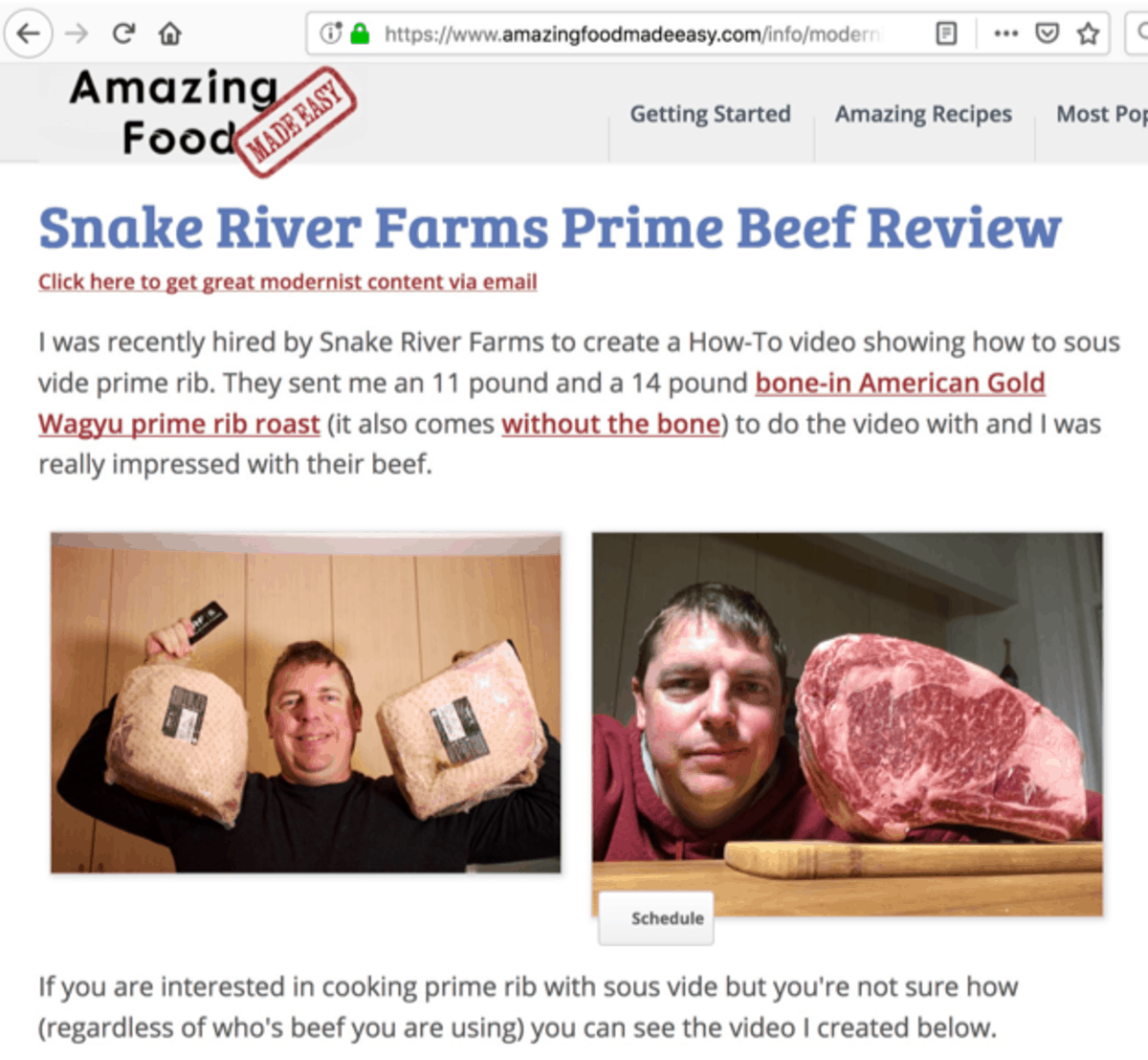 Written by Jason Logsdon
Written by Jason Logsdon
How to Properly Disclose Affiliate Links with Christen Evans
Click to discover how to serve your Fans and grow your incomeAffiliate links are a great way to make money for your website and they're a good way to serve your fan's needs. However, when you use them, you need to be clear about when you're using them, so your fans know.

This isn't only good practice about being honest with your fans, which is something that's very important to me, but it's also the law. There are a few things you must do, and in a recent podcast of mine, I talked to Christen Evans, who is an affiliate guru.
She's an affiliate brand manager for Apogee Agency, and she knows more about affiliate marketing than pretty much anyone I've ever met. Christen knows the best ways to effectively disclose that you use affiliate links.
Watch or Listen!
This is also available as a video on YouTube or a podcast on any of your favorite podcasting services.
Here is What Christen and I Had to Say
Jason Logsdon: We talked a lot about being honest with your readers and making sure you tell them what's going on. But more than just being honest with them, there are laws about what you have to do to be in compliance. Otherwise, you're breaking the law. Can you talk a little bit about what that is and what bloggers need to know?
Christen Evans: Yes, absolutely. FTC disclosure is literally like my favorite subject to talk about.
It is something you have to do. You need to follow the rules. I'm kind of a bulldog when it comes to FTC disclosure. I have been known to call out really big brands just under my own personal accounts and being like, What? Why aren't you? As an affiliate manager, I do look at my bloggers' posts regularly and tell them that they need to include the FTC disclosure.

If they don't, we will kick them out of the program. There is no excuse for non-disclosure, it's necessary to disclose. It levels the playing field, and everybody should play by the rules. I know that not everybody does, but everybody should play by the rules and you might as well start by doing it correctly than risk losing money.
They had started coming down on both influencers and brands for not disclosing properly. But guys, it's so simple. Natural language disclosure is the most easy and concise way to do it.
Literally, all you have to say is "If you purchase through the links in this post, I may make money." period, the end. It doesn't have to be anything more than that.
It doesn't have to include the words "affiliate links". The FTC specifically says that just using the term "affiliate" is not clear enough because most people don't understand what affiliate is.

The FTC does say that all disclosures need to be at the top of the post. It needs to be clear and conspicuous; you can't just have a static line over on your sidebar. It has to actually be on the post itself. It has to disclose that there's a monetary relationship.
This also includes if you're staying at a hotel and it was a hosted event, if you got free entry into an event, if you got the product for free then you need to disclose that. If it's a sponsored post, you need to disclose it. If you were receiving anything as a result of posting, as long as there is some sort of compensatory or monetary relationship, it needs to be disclosed.
As I said, just use simple, natural language disclosure. Just make life easy on yourself.

Jason: I always put one definitely at the top of the post and then if I got the product for free or that I've worked with the brand, I always say in the first paragraph or two of the blog post itself.
I will say like: "When I was working with Snake River Farms, they hired me to do a video for them and they sent me some free product and here's the video and here's the free product that I'm going to be talking about it".
Besides being upfront and honest with my readers, It's great context for them. That's what I would tell my mother-in-law. You want to be honest with them, build a rapport with your readers and I think it helps your affiliate sales because your readers trust you.
Christen: Right. And as we mentioned earlier, you can word it in a way so it helps your readers understand that by clicking through the links, they're supporting your site. You don't have to look at a disclosure as a daunting thing. You can use it to your advantage.
Use it to your advantage as a blogger and allow yourself to make money. Allow yourself to look at your blog as a business. Don't be afraid to use affiliate marketing as that way you make money. Well, one of the ways!
If you want to read some more about this, here are a few helpful links.
- Where to Place Affiliate Links on a Food Blog
- Why Reuse, Reuse, Reuse is a Superpower
- Types of Ads Food Bloggers Can Use
- Why You Need to Stop Learning and Start Doing
How do you approach disclosing your affiliate links? Let me know in the Makin Bacon Facebook Group or the comments below.
 Hi, I'm Jason Logsdon! I'm an adventurous home cook and the head writer and photographer for Amazing Food Made Easy. I grew my income to 6-figures by focusing on serving my Fans by providing massive value, and I want to help you do the same.
Hi, I'm Jason Logsdon! I'm an adventurous home cook and the head writer and photographer for Amazing Food Made Easy. I grew my income to 6-figures by focusing on serving my Fans by providing massive value, and I want to help you do the same.














